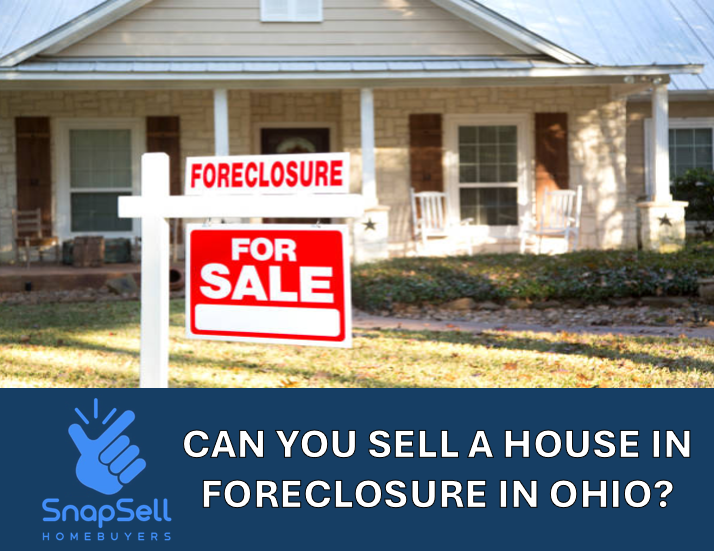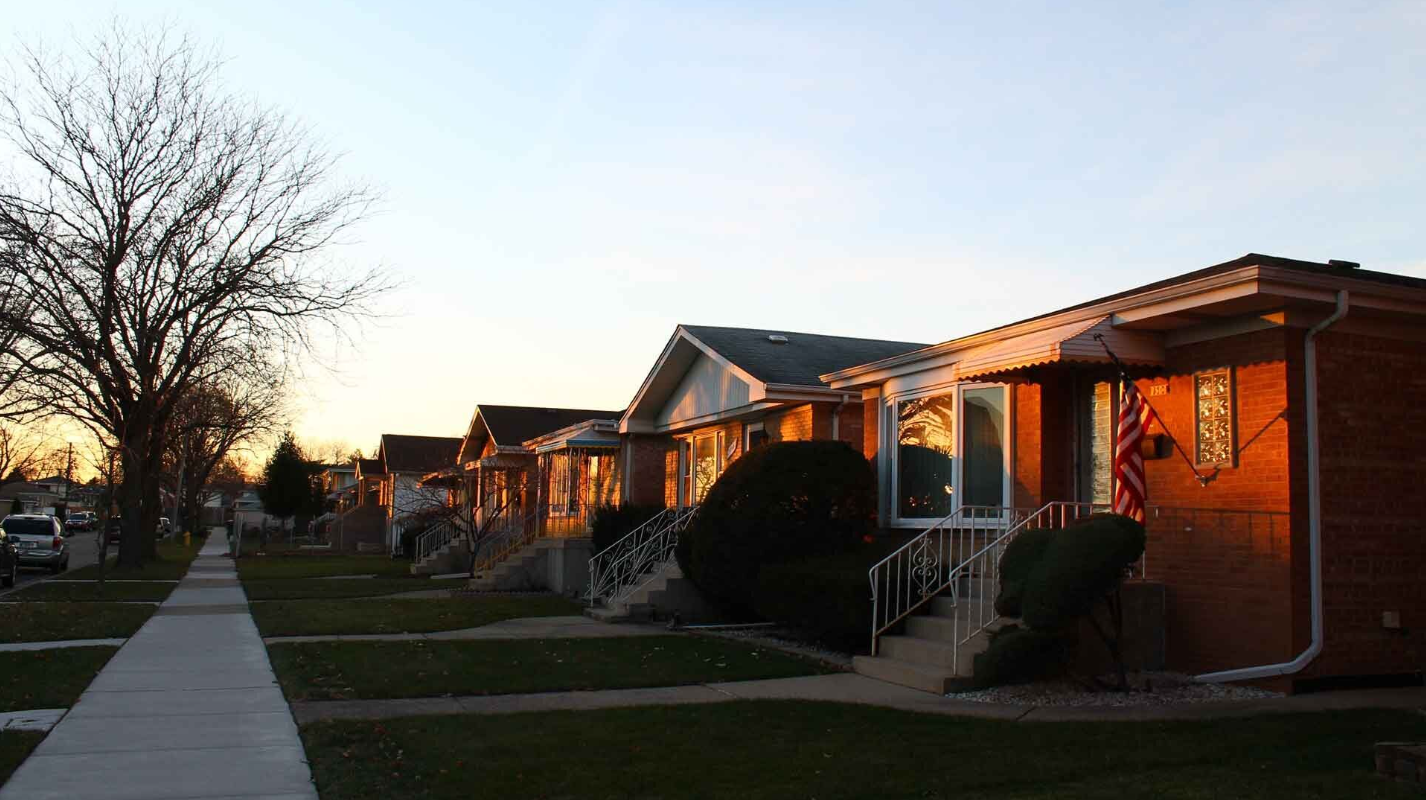
When a homeowner in Ohio falls behind on mortgage payments, foreclosure can become a real possibility. Facing foreclosure can feel overwhelming, but it is important to know that you may still have options. One of the most common questions is whether you can sell your house while it is in foreclosure. The short answer is yes, but the process involves specific steps and timelines under Ohio foreclosure laws. Understanding how the foreclosure process works and what options are available can help you make informed decisions.
What Is Foreclosure in Ohio?
Foreclosure in Ohio is a legal process that allows a lender to recover the balance of a loan when a borrower defaults on their mortgage payments. The process typically ends with the sale of the home at a foreclosure auction. Ohio is a judicial foreclosure state, which means that all foreclosure proceedings must go through the court system. The lender files a lawsuit against the borrower, and the court oversees the process.
In Ohio, foreclosure can begin after a homeowner falls behind on payments, usually for 90 days or more. Once the process begins, the lender will send notices and file legal action in court. If the borrower does not respond or cannot bring the loan current, the property will eventually be sold at a foreclosure sale. In many cases, this sale is a public auction managed by the county sheriff’s office.
The borrower still has rights during this process, including the right to contest the foreclosure or to sell the property before the auction. This is why many homeowners in preforeclosure consider selling their home to avoid foreclosure.
Judicial vs. Non-Judicial Foreclosure
Unlike some states that allow lenders to foreclose without going through court, Ohio requires judicial foreclosure. This means borrowers are entitled to notices, court hearings, and a chance to defend against the foreclosure. This extra oversight can provide homeowners with more time to consider their options, including selling the property.
Impact of Foreclosure on Credit
Foreclosure has a major effect on a borrower’s credit score, often lowering it by more than 100 points. This can make it harder to qualify for future loans or even rent a house or apartment. Selling a home before foreclosure is finalized can reduce the damage, since it prevents the foreclosure sale from appearing on your credit record.
The Timeline of the Foreclosure Process in Ohio
Understanding the foreclosure process timeline in Ohio is important if you are considering selling your house. Each case may vary, but the general steps follow a predictable pattern.
Missed Payments and Default
The process begins when a homeowner misses several mortgage payments. After about 90 days of missed payments, the lender can issue a notice of default. At this point, the loan is considered in default, and the lender may begin foreclosure proceedings.
Filing of Foreclosure Complaint
Ohio foreclosure laws require lenders to file a complaint in court to begin the foreclosure. The borrower is served with the complaint and has 28 days to respond. If the borrower does not respond, the court can grant a default judgment in favor of the lender.
Court Judgment and Sheriff’s Sale
Once the court enters judgment, it orders the property to be sold at a foreclosure auction. In Ohio, sheriff’s sales are common. The property is listed for auction, and notice of the sale is published in a local newspaper. The auction is open to the public, and the home is sold to the highest bidder.
Redemption Period
In some situations, the homeowner may have a short redemption period before the foreclosure sale. This allows the borrower to pay off the mortgage and keep the property. However, once the foreclosure sale is complete, the redemption rights are generally lost.
Transfer of Ownership
If the property sells at auction, ownership transfers to the winning bidder or the lender if no one bids. The home becomes bank-owned if the lender takes possession. At this point, the borrower no longer has rights to the property.
Eviction
Once your home is sold, you’ll receive an eviction notice that gives you three days to move out. If you remain past that deadline, the new owner can take the case to court. The court will then issue an order giving you five additional days to leave, after which law enforcement may remove you from the property.
The Process of Selling a House in Foreclosure in Ohio
You can stop foreclosure if you get a legitimate offer for your house in Ohio. Because you’ll have limited time, you’ll want to start immediately after you receive notice from the lender that your house will be sold.
List the Property or Sell to an Investor
You can choose to list the property for sale through a real estate agent or consider selling directly to an investor. A traditional listing can take time, so homeowners often weigh whether they have enough time before the foreclosure sale date. Investors or cash buyers can close faster, which is sometimes necessary during foreclosure proceedings.
Working With Your Lender
If you receive an offer on your home, you must coordinate with your lender. In some cases, especially if the home is worth less than the mortgage balance, a short sale may be required. A short sale involves the lender agreeing to accept less than what is owed. Approval from the lender is necessary before moving forward, and this process can take time.
Closing the Sale
If the sale closes before the foreclosure auction, the proceeds are used to pay off the mortgage. This allows you to avoid foreclosure and the long-term impact it can have on your credit. Selling before the foreclosure proceedings reach auction is often one of the best ways to protect your financial future.
Obstacles When Selling a House in Foreclosure in Ohio
Selling a house during foreclosure in Ohio is possible, but it comes with several challenges. Time is the biggest hurdle because once foreclosure proceedings begin, the clock is ticking toward an auction. If a buyer is not found quickly, the sale will move forward. Homes that are underwater, where the mortgage exceeds the market value, often require lender approval for a short sale. This process can take weeks or months, and approval is not guaranteed.
Legal requirements add another layer of complexity. Ohio foreclosure laws have strict deadlines and procedures. Working with a foreclosure attorney can help homeowners navigate the process, negotiate with lenders, and potentially delay auctions. Local market conditions also play a role. In slow markets or areas with declining home values, finding a buyer quickly can be difficult. On top of all this, the emotional stress of foreclosure from court notices and lender calls can feel overwhelming. Professional guidance can help reduce this burden and improve the chances of a successful sale.
Alternatives to Selling a House in Foreclosure
Selling your home in Ohio may be the right choice, but there are other options worth considering before you make a final decision. You may need to inform your lender of your intentions, and any agreement should be in writing and signed by both parties to ensure it is valid and to prevent issues that could allow foreclosure to continue. Starting this process before your home is listed for auction can improve your chances of achieving a better outcome.
Loan Modification
Some lenders offer loan modification programs, which adjust the terms of the mortgage to make payments more manageable. Modifications may extend the length of the loan, reduce the interest rate, or add missed payments to the loan balance.
Bankruptcy
Filing for bankruptcy can temporarily halt foreclosure proceedings through an automatic stay. However, this option has serious consequences and should only be considered with guidance from a foreclosure attorney. Bankruptcy can affect credit for years, but it can also provide breathing room for some homeowners.
Deed in Lieu of Foreclosure
Another option is a deed in lieu of foreclosure, where the borrower voluntarily transfers ownership of the property to the lender. While this avoids foreclosure, it still results in the loss of the home and may impact credit, though usually less severely than a foreclosure sale.
Repayment Plans
Borrowers may be able to negotiate a repayment plan with the lender to catch up on missed mortgage payments. These plans spread the overdue balance over several months while the borrower continues to make regular payments.
Refinancing
In rare cases, refinancing may be possible if the homeowner still has decent credit and enough equity. A refinance could bring the loan current and prevent foreclosure. However, for most borrowers in foreclosure, this option is difficult to achieve.
Short Sale
You might sell your home for less than what you owe if your lender agrees and your house is worth less than your mortgage. A short sale transfers ownership quickly and usually affects your credit less than foreclosure. It’s a good idea to speak with a lawyer to see if this option fits your situation.
Selling a House in Foreclosure in Ohio FAQ
How long does it take to foreclose on a property in Ohio?
In Ohio, foreclosure usually takes 6 to 18 months or longer, depending on the case. Ohio is a judicial foreclosure state, so the process goes through the courts. Foreclosure starts after several months of missed mortgage payments. Lenders typically wait 90 to 120 days of missed payments before filing a lawsuit.
How do I stop foreclosure in Ohio?
The best way to avoid foreclosure is to pay your mortgage on time. If you are struggling financially, contact your lender right away to explore options such as loan modification, forbearance, refinancing, or other options already mentioned above.
What is the right of redemption in an Ohio foreclosure?
In Ohio, the right of redemption lets a homeowner reclaim their property after a foreclosure sale by paying the full mortgage balance plus costs. This period lasts six months for most residential homes. If the homeowner does not act within that time, the buyer gains full ownership.
What is the 120-day rule for foreclosure?
In Ohio, the 120-day rule requires lenders to wait at least 120 days after a missed payment before filing for judicial foreclosure. It gives homeowners time to catch up or explore options like loan modification or short sale. Not all loans fall under this rule, but lenders cannot start foreclosure in court during this period.
Can You Sell Your House After the Sheriff’s Sale?
No. Once the foreclosure auction takes place and the property is sold, you no longer own the home. At that point, you cannot sell the property. Acting before the auction is critical.
Will Selling During Foreclosure Stop the Proceedings?
Yes. If the sale closes before the foreclosure auction, the foreclosure proceedings end. The lender receives the sale proceeds, and the case is resolved.
What If the Sale Price Does Not Cover the Mortgage?
If the home sells for less than the balance owed, a short sale may resolve the debt if the lender agrees. However, the lender may still pursue a deficiency judgment in some cases unless they waive it.
Do You Need a Foreclosure Attorney to Sell?
While it is not legally required, working with a foreclosure attorney is strongly recommended. They can ensure deadlines are met, negotiate with the lender, and help protect your rights.
How Does Preforeclosure Affect Selling?
Preforeclosure happens when a homeowner falls behind on mortgage payments, but the bank has not yet sold the home. During this time, the homeowner can still sell the property to pay off the debt. The sooner you start the sale process, the better the outcome you can expect.
Easiest Way to Sell a House in Foreclosure in Ohio
Selling to a cash buyer is the easiest way to sell a house in foreclosure in Ohio. Cash buyers can close quickly, often in a matter of days, which helps homeowners avoid the long delays of traditional sales. Since cash home buyers do not rely on mortgage approval, there is less paperwork and fewer steps to complete. This makes the process faster and more predictable, reducing the risk that the sale will fall through.
In addition, cash sales can simplify negotiations with the lender. Homeowners can use a cash offer to pay off the mortgage and stop the foreclosure process. The transaction usually requires fewer inspections and no financing contingencies, which makes it simpler than listing the home on the open market. For homeowners facing a strict foreclosure timeline, selling to a cash buyer offers a clear, efficient path to avoid further legal and financial complications.
The insights in this article are relevant to the entire state of Ohio, including cities like Akron, Cleveland, Canton, Massillon, Parma, Westlake, Lakewood, Medina, Strongsville, Cuyahoga Falls, Brook Park, Barberton, Columbus, and more!

